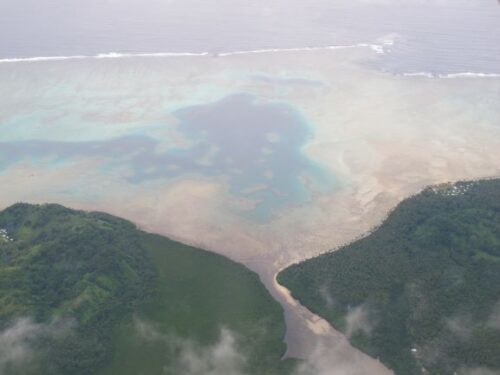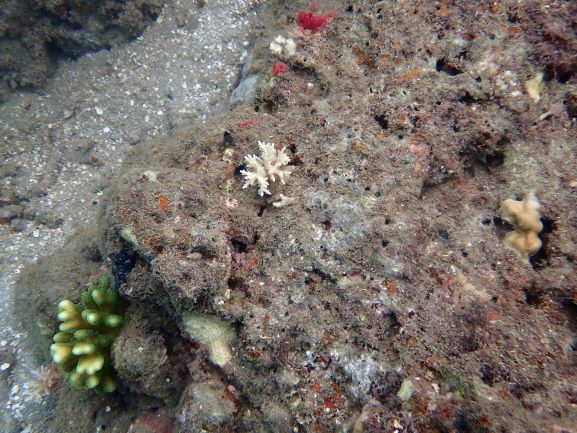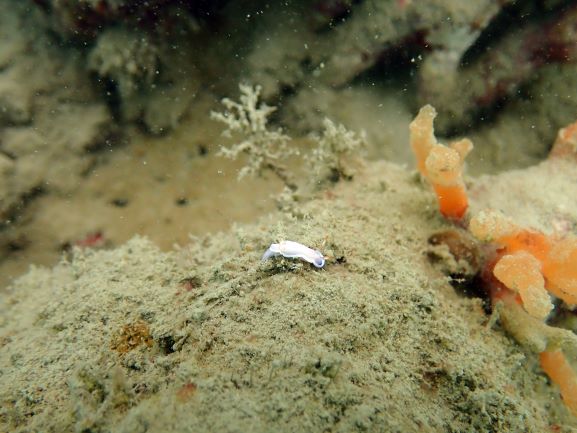How coral reefs benefit from healthy watersheds
As part of the Watershed Interventions for Systems Health in Fiji (WISH Fiji) project, the Wildlife Conservation Society (WCS) and our partners are trying to identify how activities on the land may be impacting downstream coral reefs. This is a bit like detective work to try to uncover convincing evidence to link human activities to reef condition.
What you see on a coral reef at any given time represents an integrated history of all environmental conditions to which the reef has been exposed, both through natural and human-influenced processes. There is a high natural degree in variability of the types of corals and other benthic organisms you might find, which can be related to things like depth, reef habitat, and wave exposure. Furthermore, some coral reef organisms are better able to tolerate disturbance due to their growth forms (e.g., robust mounding corals can tolerate high energy waves much better than delicate branching corals) and genetic predisposition.

Over the past few decades, there has been growing concern that rapid rates of change in how humans use the land adjacent to coral reefs is leading to unfavourable shifts in reef communities. There is evidence from numerous field studies that reefs growing adjacent to heavily altered catchments tend of have corals with higher rates of partial mortality and disease, increased algal cover, low rates of recruitment of new juvenile corals, and increased amounts of bio-erosion. Recent research from the Coral Coast in Fiji also has shown negative feedback whereby larval coral and fish preferentially avoid settling in areas with more algal growth. These issues taken together prevent reef growth and recovery following disturbance, and can ultimately lead to the breakdown of reef structure.

What are the mechanisms that influence these impacts? Large-scale vegetation removal from watersheds and soil compaction over time can lead to higher volumes of river runoff reaching the nearshore, coupled with higher end loads of sediments and nutrients that can be compounded from poor agricultural and waste management practices. Corals, as well as other benthic reef organisms, can be quite sensitive to sudden changes in salinity, sediment and nutrient loads, as well as other chemicals that may be running of the land from pesticides or industrial activities.
Elevated sediments in the coastal environment can negatively affect corals and other benthic organisms through multiple pathways. They can reduce the amount of light, which is needed by the algae (called zooxanthellae) that live in coral tissues and produce the corals’ food. Large sticky flocs called marine snow, which form in particular when sediments aggregate in high nutrient conditions, can smother coral recruits and other small benthic organisms. When these particles land on larger coral colonies, the corals may get stressed trying to slough off the particles either by ciliary action or by producing large volumes of mucus that can be washed away by currents. The increased amount of particulates and dissolved organic material has also been documented to be associated with increased microbial activity that promotes coral disease.

The WCS Fiji team is at the early stages of trying to identify baseline conditions of coral reefs downstream from the Dawasamu, Waibula, Bureta and Dama river catchments in Tailevu, Lomaiviti and Bua provinces. We will use historical records and accounts of land cover change to try to identify how past activities have shaped current reef condition. And then we will work with the local communities in these locations to undertake watershed management interventions designed to reduce sediments and nutrients in their waterways and ultimately improve downstream reef condition.
The WISH Fiji project also goes beyond trying to manage coral reefs. The project partners are taking an integrated approach to watershed management to improve the health of the entire linked ridge-to-reef systems, including for the people residing in the river catchments. Our collaborative research has shown that the same types of activities that degrade watersheds are also linked to the incidence and occurrence of water-related disease, such as typhoid and leptospirosis, in people. Thus, by taking a holistic approach through managing at the watershed scale, we aim to improve water safety, water quality, and overall system health.
The WISH Fiji project is a partnership between the University of Sydney, Edith Cowan University, Fiji National University and Wildlife Conservation Society (WCS) in close collaboration and partnership with the Fiji Ministry of Health and Medical Services, Water Authority of Fiji, World Health Organisation (WHO), the Pacific Community (SPC), UNICEF. The project is generously supported by Bloomberg Philanthropies’ Vibrant Oceans Initiative and the Australian Government Department of Foreign Affairs and Trade.

